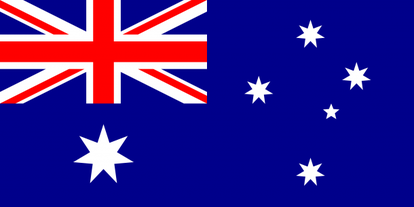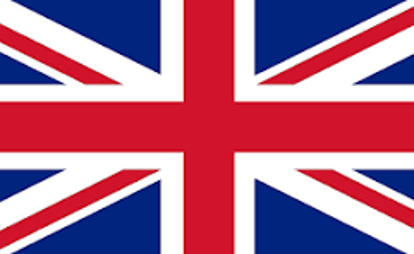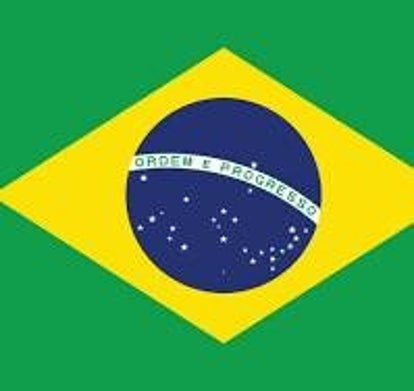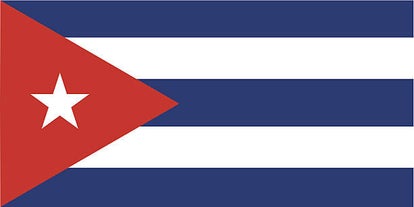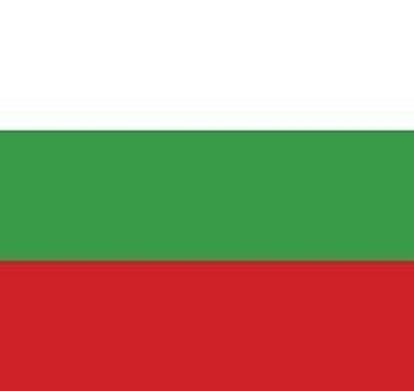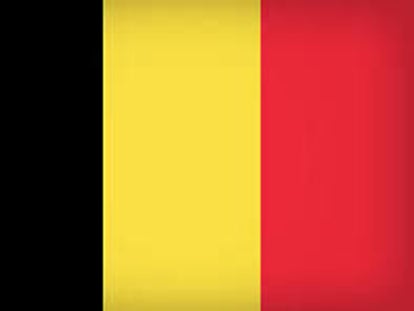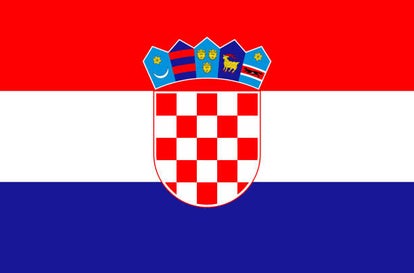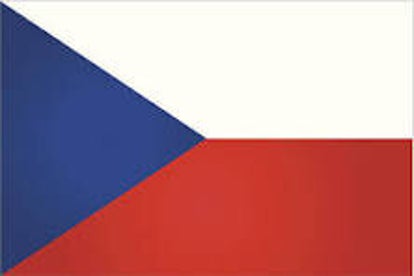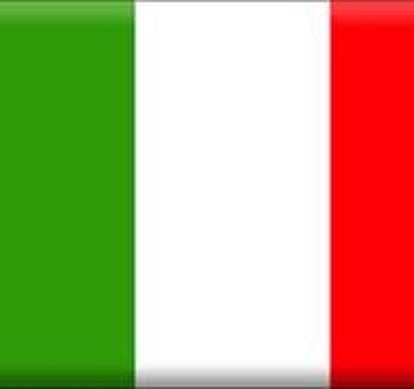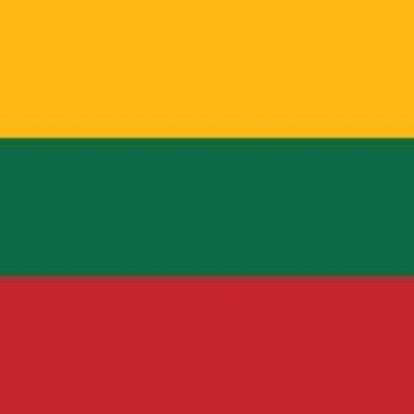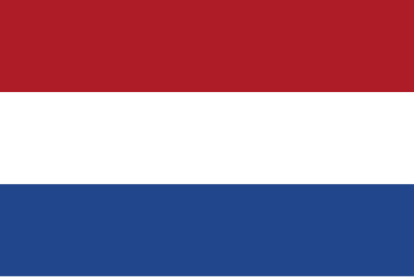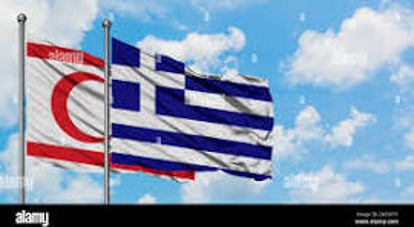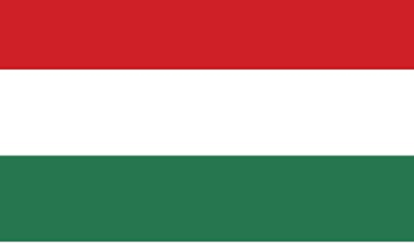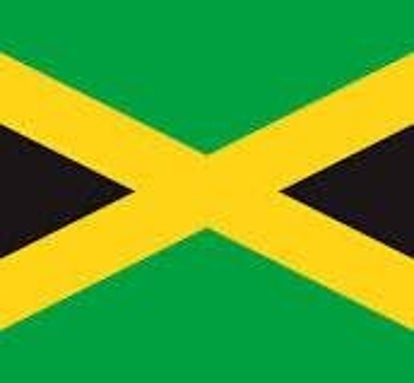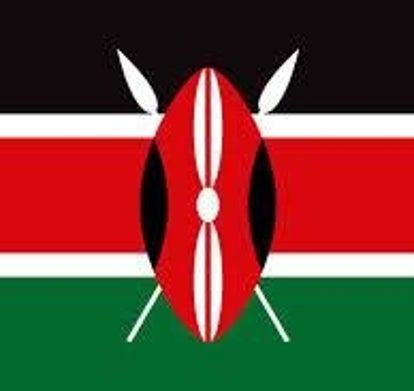An arrangement of the national anthem of Australia for Symphony Orchestra made for the Orchestre national d'Île-de-France. There are versions for Brass Quintet, String Orchestra in my store. "Advance Australia Fair" is the national anthem of Australia. digenous Australians.
The British National Anthem "God Save the Queen" , arranged for the Orchestre national d'Île-de-France.
Love anthems then join me on twitter, facebook, soundcloud & instagram for updates. "God Save the King" (alternatively "God Save the Queen" when the British monarch is female) is the national anthem of the United Kingdom and the royal anthem of each of the British Crown Dependencies, one of two national anthems of New Zealand, and the royal anthem of most Commonwealth realms. The author of the tune is unknown and it may originate in plainchant, but an attribution to the composer John Bull has sometimes been made.
Brazillian National Anthem for Symphony Orchestra (Orchestre national d'Île-de-France edition)
Brazillian National Anthem for Symphony Orchestra (Orchestre national d'Île-de-France edition)
Brazillian National Anthem for Symphony Orchestra (Orchestre national d'Île-de-France edition).
The "Brazilian National Anthem" (Portuguese: Hino Nacional Brasileiro) was composed by Francisco Manuel da Silva in 1831 and had been given at least two sets of unofficial lyrics before a 1922 decree by president Epitácio Pessoa gave the anthem its definitive, official lyrics, by Joaquim Osório Duque-Estrada, after several changes were made to his proposal, written in 1909.
The anthem's lyrics have been described as Parnassian in style and Romantic in content.
The Chinese National Anthem as performed by the Orchestre national d'Île-de-France. The "March of the Volunteers", originally titled the "March of the Anti-Manchukuo Counter-Japan Volunteers", has been the official national anthem of the People's Republic of China since 1978. Unlike previous Chinese state anthems, it was written entirely in vernacular Chinese, rather than in Classical Chinese.
An arrangement of the Cuban National Anthem for the Orchestre national d'Île-de-France. "El Himno de Bayamo" (English: "The Bayamo Anthem", lit. 'The Hymn of Bayamo"') is the national anthem of Cuba. It was first performed in 1868, during the Battle of Bayamo. Perucho Figueredo, who took part in the battle, wrote and composed the song. The melody, also called "La Bayamesa" (English: "The Bayamo Song"), was composed by Figueredo in 1867.
Azerbaijan National Anthem for Symphony Orchestra ( Orchestre national d'Île-de-France Edition)
Azerbaijan National Anthem for Symphony Orchestra ( Orchestre national d'Île-de-France Edition)
Azerbaijan National Anthem for Symphony Orchestra (Nordwestdeutsche Philharmonie Edition), featuring double woodwind akin to my Orchestre national d'Île-de-France edition).
"Azərbaycan marşı" is the national anthem of Azerbaijan. The music was composed by Uzeyir Hajibeyov, and the lyrics were written by poet Ahmad Javad or cultural figure and politician Jamo bey Hajinski.
The Bulgarian National Anthem arranged for full Orchestra, as performed by the Orchestre national d'Île-de-France.
"Mila Rodino" (Bulgarian: Мила Родино, [ˈmiɫɐ ˈrɔdino]; lit. 'Dear Motherland') is the national anthem of Bulgaria. It was composed and written by Tsvetan Radoslavov as he left to fight in the Serbo-Bulgarian War in 1885 and was adopted in 1964.
An arrangement for Symphony Orchestra of "La Brabançonne" for the Orchestre national d'Île-de-France. "La Brabançonne" is the national anthem of Belgium. The originally French title refers to the Duchy of Brabant; the name is usually untranslated in Belgium's other two official languages, Dutch and German.
The Canadian National Anthem as performed by the Orchestre national d;Ile-de-France.
“O Canada” came into being in 1880, 100 years before it became Canada’s National Anthem.
The song was commissioned by the Lieutenant-Governor of Quebec, the Honourable Théodore Robitaille, to mark the Saint-Jean-Baptiste Day celebrations in the City of Québec on June 24, 1880, a performance which was also meant to honour the Congrès national des Canadiens français (National Congress of French Canadians).
An arrangement of the Croatian National Anthem for the Orchestre national d'Île-de-France. "Lijepa naša domovino" (Croatian: [ljêːpa nâʃa domǒʋiːno]; "Our Beautiful Homeland") is the national anthem of Croatia. Often simply referred to as "Lijepa naša" ("Our Beautiful") in Croatia, it is a phrase widely used as a metonym for the country.[
An arrangement of the beautiful and melancholic Czech National Anthem arranged for the Orchestre national d'Île-de-France. Kde domov můj" - "Where My Home Is") is the national anthem of the Czech Republic, written by the composer František Škroup and the playwright Josef Kajetán Tyl.
An arrangement of the Danish National Anthem for the Orchestre national d'Île-de-France. "Der er et yndigt land", lit. 'There is a lovely land') is one of the two national anthems of Denmark.
The French National Anthem as performed by the Orchestre National de France.
"La Marseillaise" is the national anthem of France. The song was written in 1792 by Claude Joseph Rouget de Lisle in Strasbourg after the declaration of war by France against Austria, and was originally titled "Chant de guerre pour l'Armée du Rhin"[b] ("War Song for the Army of the Rhine").
The German National Anthem as performed by the Orchestre national d'Île-de-France. The "Deutschlandlied" has been the national anthem of Germany either wholly or in part since 1922, except for a seven-year gap following World War II in West Germany. In East Germany, the national anthem was "Auferstanden aus Ruinen" ("Risen from Ruins") between 1949 and 1990.
An arrangement of the Iranian National Anthem made for the Orchestre national d'Île-de-France.
The National Anthem of the Islamic Republic of Iran was adopted in 1990, replacing the previous anthem used during the rule of Ruhollah Khomeini. It was composed by Hassan Riyahi, and the lyrics were written by Sayed Bagheri. It is the fourth official Iranian national anthem.
An arrangement of the Italian National Anthem for the Orchestre national d'Île-de-France, scored with double woodwind.
"Il Canto degli Italiani" - "The Song of Italians") is a patriotic song written by Goffredo Mameli and set to music by Michele Novaro in 1847,cur rently used as the national anthem of Italy. I
All the national anthems on this page were especially arranged for the Orchestre national d'Île-de-France by yours truly. They all have double woodwind parts & have all been performed & recorded by the ONDF in France. My anthems have also been performed under the baton of Semyon Bychkov with the Czech Philharmonic and Prague Philharmonic Choir, the New York Philharmonic under Herman Blomsetdt, Los Angeles Philharmonic & many more. It doesn't get any better than that!
1) Czech Philharmonic: https://www.youtube.com/watch?v=XkcKTH84d44
2) San Antonio Symphony: https://www.youtube.com/watch?v=-Rtu3_lOk_U
3) New York Philharmonic: https://www.youtube.com/watch?v=6r1oVa3_Nt4
4) Longwood Symphony: https://www.youtube.com/watch?v=2clexEkiet8&list=RDMM&index=5
5) Western Australia Symphony Orchestra: https://www.youtube.com/watch?v=hrLDUHKh3pk
6) Orchestre National de France: https://www.youtube.com/watch?v=25PrUiajLbU
7) NDR Elbphilharmonie Orchestra: https://www.youtube.com/watch?v=bJkh8JSU0FI
8) Leinster House Ireland: https://www.youtube.com/watch?v=uvoWLwSF9eo
9) Trafalgar Square: https://www.msn.com/en-us/news/other/prayer-for-ukraine-london-flashmob-orchestra-shows-solidarity-through-music/vi-AAUIkXd
10) Trafalgar Square: https://www.msn.com/en-us/news/world/musicians-in-london-play-ukrainian-national-anthem/vi-AAUJZ2c
11) Trafalgar Square: https://www.msn.com/en-us/news/good-news/uk-anti-war-protesters-sing-ukrainian-national-anthem/vi-AAUI8p8
12) Symphony 21: https://www.youtube.com/watch?v=qswERixcLdc&t=1s
13) Kennedy Centre https://www.youtube.com/watch?v=-k-XqR4g-_o
14) Las Vegas Phil: https://www.youtube.com/watch?v=XuVV_IN14co
15: Mid Columbia SO: https://www.youtube.com/watch?v=eFD8AfL_XS4
16: UBC SO:https://www.youtube.com/watch?v=Q5_vZrZ8bHo
17: https://www.youtube.com/watch?v=VFUbn3luA2A Violin & Piano
Lithuanian National Anthem for Symphony Orchestra (L'orchestre national d'Île de France Edition)
Lithuanian National Anthem for Symphony Orchestra (L'orchestre national d'Île de France Edition)
"Tautiška giesmė" (pronounced [ˈtˠɐʊtʲɪʃˠkɐ ɡʲɪɛsʲˈmʲeː]; 'National Song') or "Lietuvos himnas" ('Anthem of Lithuania'), also known by its incipit "Lietuva, Tėvyne mūsų" ('Lithuania, Our Homeland'), is the national anthem of Lithuania. The music and lyrics were written in 1898 by Vincas Kudirka, when Lithuania was still part of the Russian Empire. The fifty-word poem was a condensation of Kudirka's conceptions of the Lithuanian state, the Lithuanian people, and their past. Shortly before his death in 1899, the anthem was performed for Lithuanians living in Saint Petersburg, Russia.
An arrangement of the Dutch National Anthem as performed by the Orchestre national d'Île-de-France. Though only proclaimed the national anthem in 1932, the "Wilhelmus" already had a centuries-old history.
An arrangement of the Greek & Northern Cypriot National Anthem ''Hymn to Freedom'' for the Orchestre national d'Île-de-France.
The "Hymn to Liberty" had been the Greek royal anthem after 1864. "Hymn to Liberty" has been the national anthem of Cyprus since 1966. "Hymn to Liberty" has been performed at every closing ceremony of the Olympic Games, to pay tribute to Greece as the birthplace of the Olympic Games.
An arrangement of the Hungarian National Anthem as performed by the Orchestre national d'Île-de-France.
The anthem was adopted in 1844, while Hungary was still a part of the Austro-Hungarian Empire. m remains the official anthem.
An arrangement of the Jamaican National Anthem for the Orchestre national d'Île-de-France.
"Jamaica, Land We Love" is the national anthem of Jamaica, officially adopted in July 1962.
An arrangement of the Japanese National Anthem for the Orchestre national d'Île-de-France Edition.
"Kimigayo" is the national anthem of Japan. The lyrics are from a waka poem written by an unnamed author in the Heian period (794–1185), and the current melody was chosen in 1880, replacing an unpopular melody composed by John William Fenton in 1869. While the title "Kimigayo" is usually translated as "His Imperial Majesty's Reign", no official translation of the title or lyrics have been established in law.
An arrangement of Kenyan National Anthem for the Orchestre national d'Île-de-France.
Ee Mungu Nguvu Yetu"'s lyrics were originally written in Kiswahili, the national language of Kenya. The commission responsible for its creation included five members and was headed by the Kenya Music Adviser.
